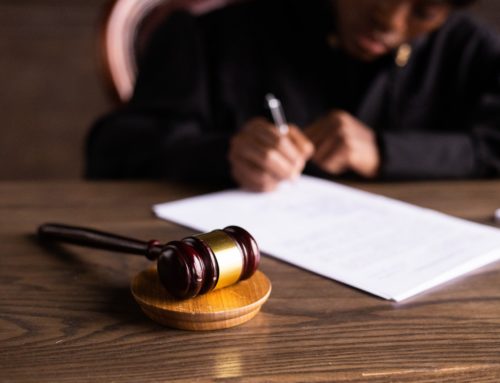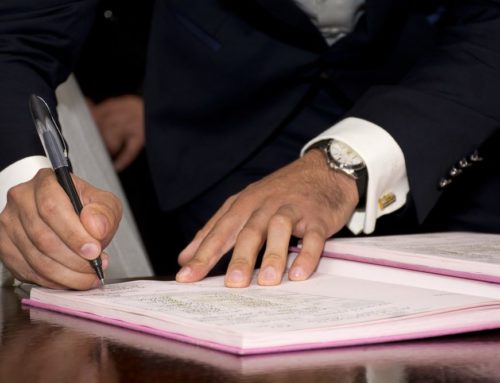Why does collaborative divorce work? The answer depends on who you ask. Lawyers may say it works because it gets the lawyers and judges out of the way. Clients may say it works because of the control it gives them over their divorces, estates and children. Neutral professionals may say it works because they can bring their one-on-one expertise to bear.
My view is different and it is this – it’s none of the above nor any other of the umpteen reasons we might give why collaborative divorce is so effective. Not because our answers are bad – in fact, they’re very good. And accurate. And true, as far as they go.
But to me the “pat” answers don’t hit the mark because they don’t drill down deeply enough. I’ve been a lawyer for thirty-seven years, a family lawyer for almost all of those thirty-seven as well as a mediator since 1983 and a collaborative lawyer since 2000. I’ve been alive for sixty-eight years. I was divorced once and have been married twice. I have four children, only two of whom are living, four grandkids and one great-granddaughter. My son was divorced. He and his wife had two kids of their own. My grandson was divorced. He and his wife had a child of their own. In my opinion, which is based on my experience as a lawyer and as a divorced parent, a bereaved father, a husband and a grandfather, there’s one basic notion which underlies all of collaborative divorce and which makes it work.
For what it is, let’s go back to 1963. In June of that year President John F. Kennedy spoke at The American University in D.C. The speech he gave would become famous because it marked the beginning of an American effort to thaw the Cold War with the Soviet Union. And how did President Kennedy kick off the thaw? Not by berating or threatening the Soviets but in reminding them of what we and they, and all humankind for that matter, have in common.
He said “Our most basic common link is that we all inhabit this planet. We all breathe the same air. We all cherish our children’s future. And we are all mortal.”
Wow! As we used to say way back in the 60’s, that’s heavy. And true. And it’s well worth remembering and repeating that, in family law as in international diplomacy, we solve our common problems only when we acknowledge our commonality rather than play up our differences.
I once spoke to a group of lawyers about this very subject. About how the adversarial system (you know, the one that’s supposed to get us all down to the truth of things) not only promotes but also creates highly distorted portraits of its litigants.
I told them this – if you pay a smart, creative lawyer $300.00 – $400.00 an hour to spend the time it takes to research another human being (who happens to be a party in a lawsuit) and then ask those lawyers to take the worst possible view of the data they’ve found, do you think the picture that will emerge of that party will bear even a remote resemblance to who she really is?
Of course not!
So let’s all be honest about this, shall we? The parties in a family law case (mistakenly) believe it is in their best interest as litigants (who want to win their cases by defeating the other side) to demonize the other side. Their zealous advocates (who get paid by the hour to carry the water for their clients) assist by painting an exaggerated, distorted and entirely unfair portrait of the other side. Thus, we get two portraits of Dorian Gray, so to speak, neither of which is accurate and both of which, taken together, only demonstrate how far apart we feel. And how angry. And how afraid, for that matter.
My daddy was a Methodist minister who served in local parishes for forty years. He died many years ago but his spirit lives with me still. He was of the view that humankind divides but God unites. The Buddha was of the same mind. The first of his Four Noble Truths taught us that to live is to suffer, and we know that the ultimate suffering for us is death or, as John Kennedy put it, “we are all mortal.”
Our suffering unites us. As do our dreams for our children. And our hopes for our own futures. It is not coincidental that our collaborative divorce begins with a meeting in which the parties state their goals and interests (gosh, how dry sounding is that – we need to come up with something sexier!). What we’re really doing is asking them to tell us how they are alike and where they have common goals, because “We all cherish our children’s future.”
Collaborative divorce frees all of us – lawyer and neutrals alike, not just the parties – to experience our commonality. To process our humanity, if you will. Folks, I have been in the lawyer business for almost forty years but I have yet to have one single parent come into my office, sit in a chair and during a consultation tell me “Mr. Lewis, I must tell you that I am here in the worst interest of my children.”
We all want what’s best for our kids. All of us, every time. That’s at our very core or, as President Lincoln might have said, our love and devotion to our children is “marrow deep.” It is a shared experience that pulls us together because kids are kids, no matter their gender, color, religion, race or national origin. A legal process that recognizes, accepts and empowers that wonderful commonality we as parents all share can’t help but work.
So, thank goodness for the genius of Stu Webb and thank goodness for the sanity of collaborative divorce for giving us the permission to be real, live human beings. And to find and exercise our humanity, in full view of others who are legally adverse to us, no less. (It’s a pity our collaborative clients can’t consult with our Congress and give them some lessons in how to get along.)
To paraphrase and slightly alter Pogo’s famous aphorism, and for the single reason why collaborative divorce is so powerfully effective, we say – “We have met the ally and s/he is us.”
– Mark Lewis







